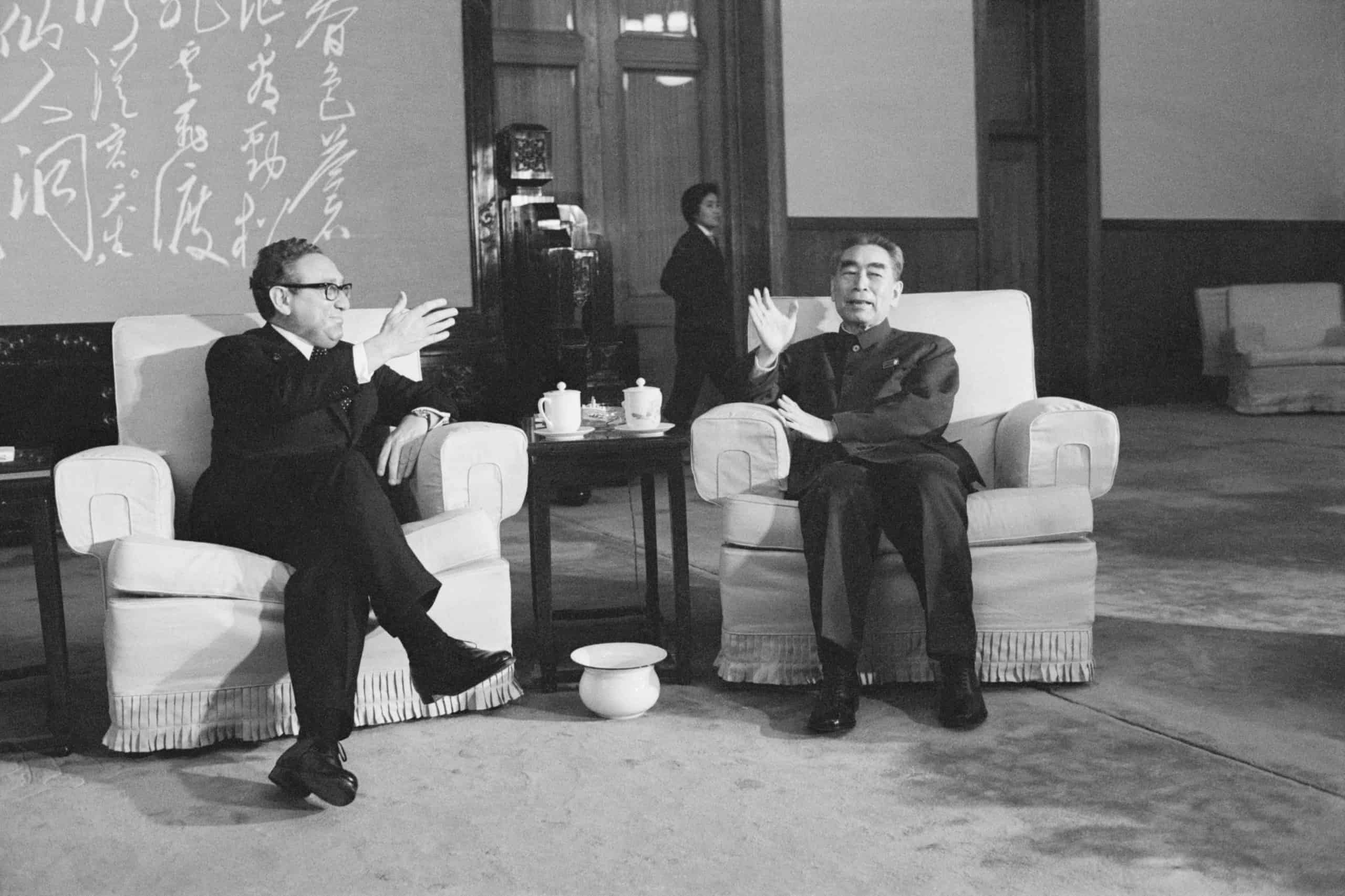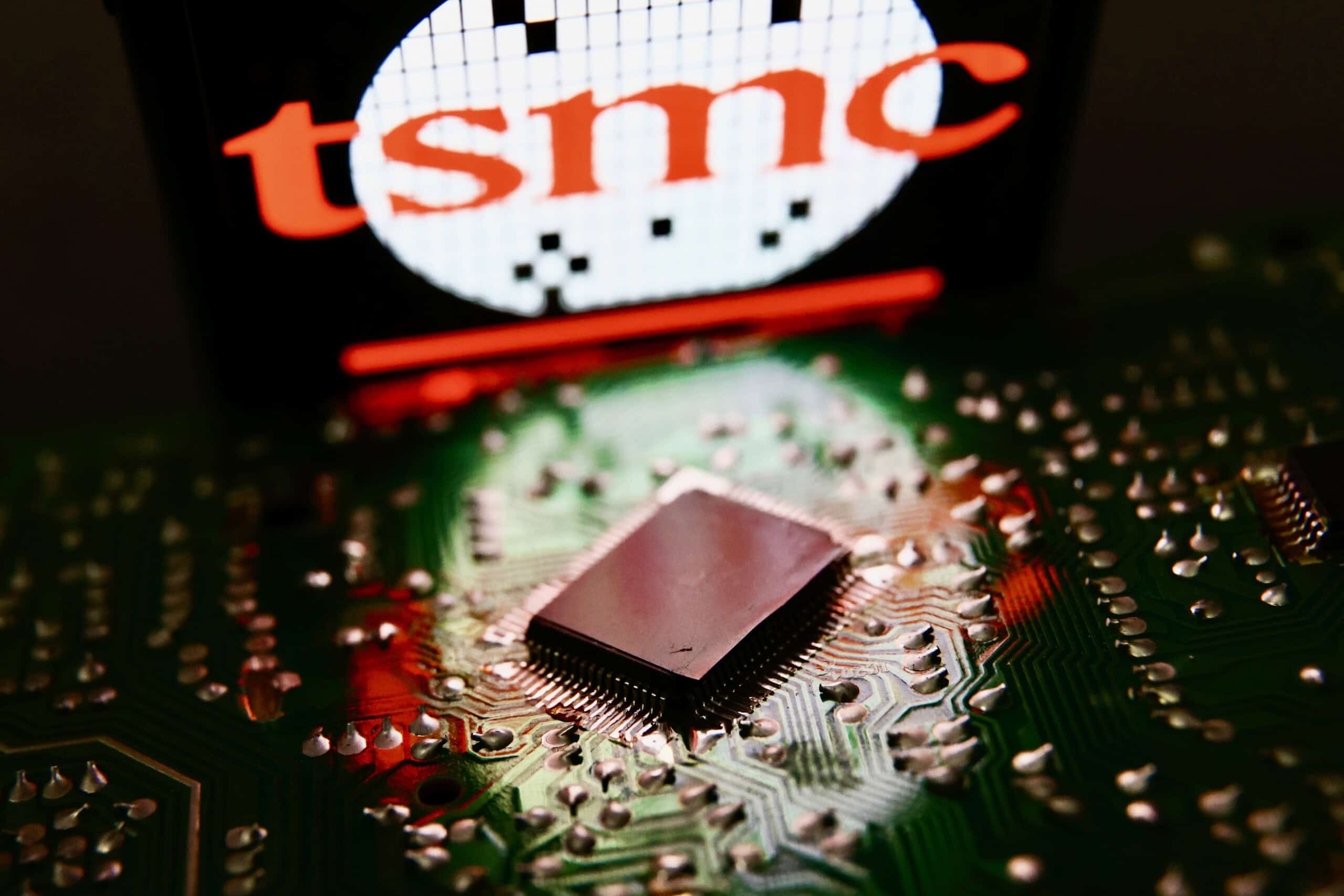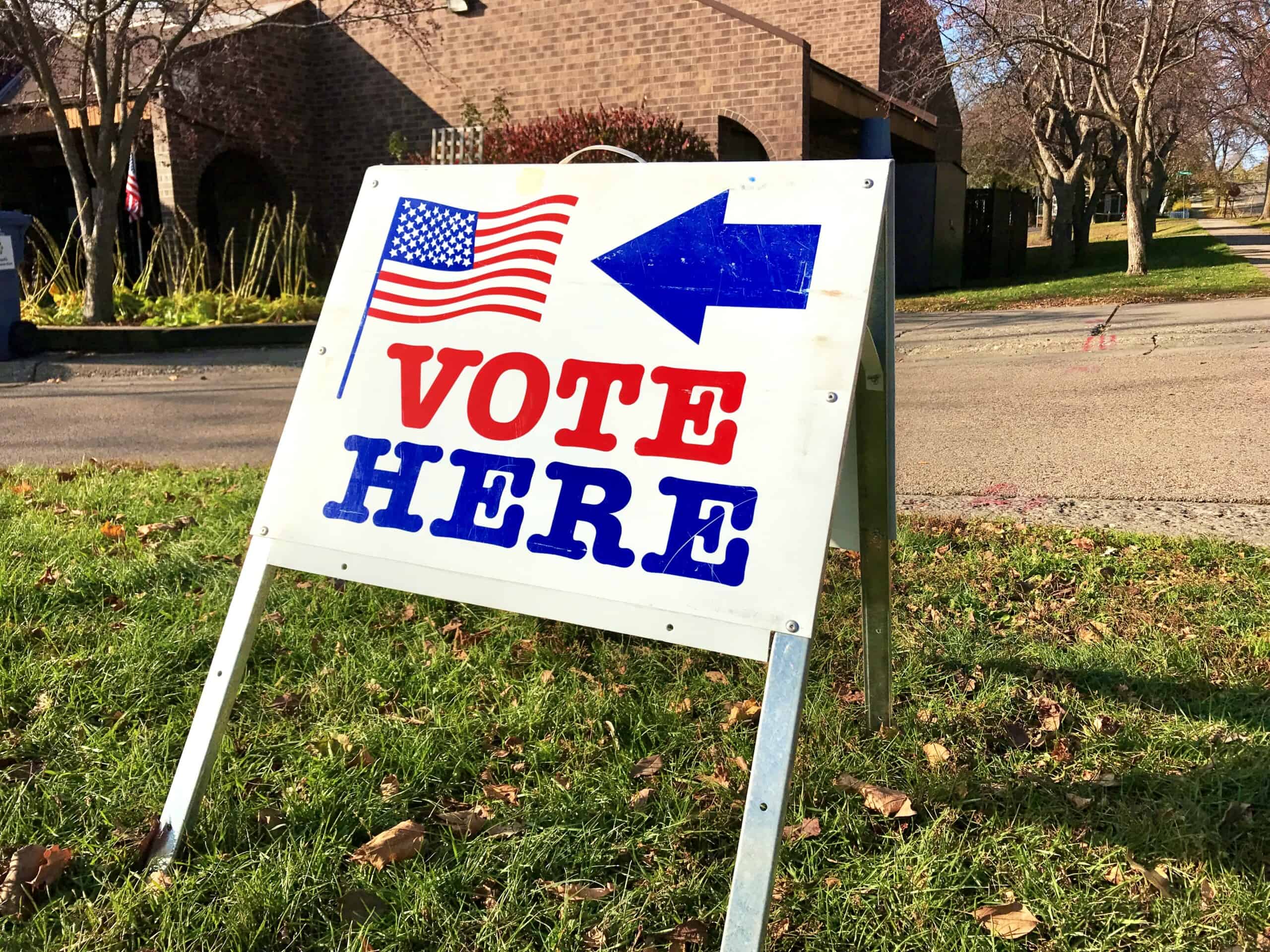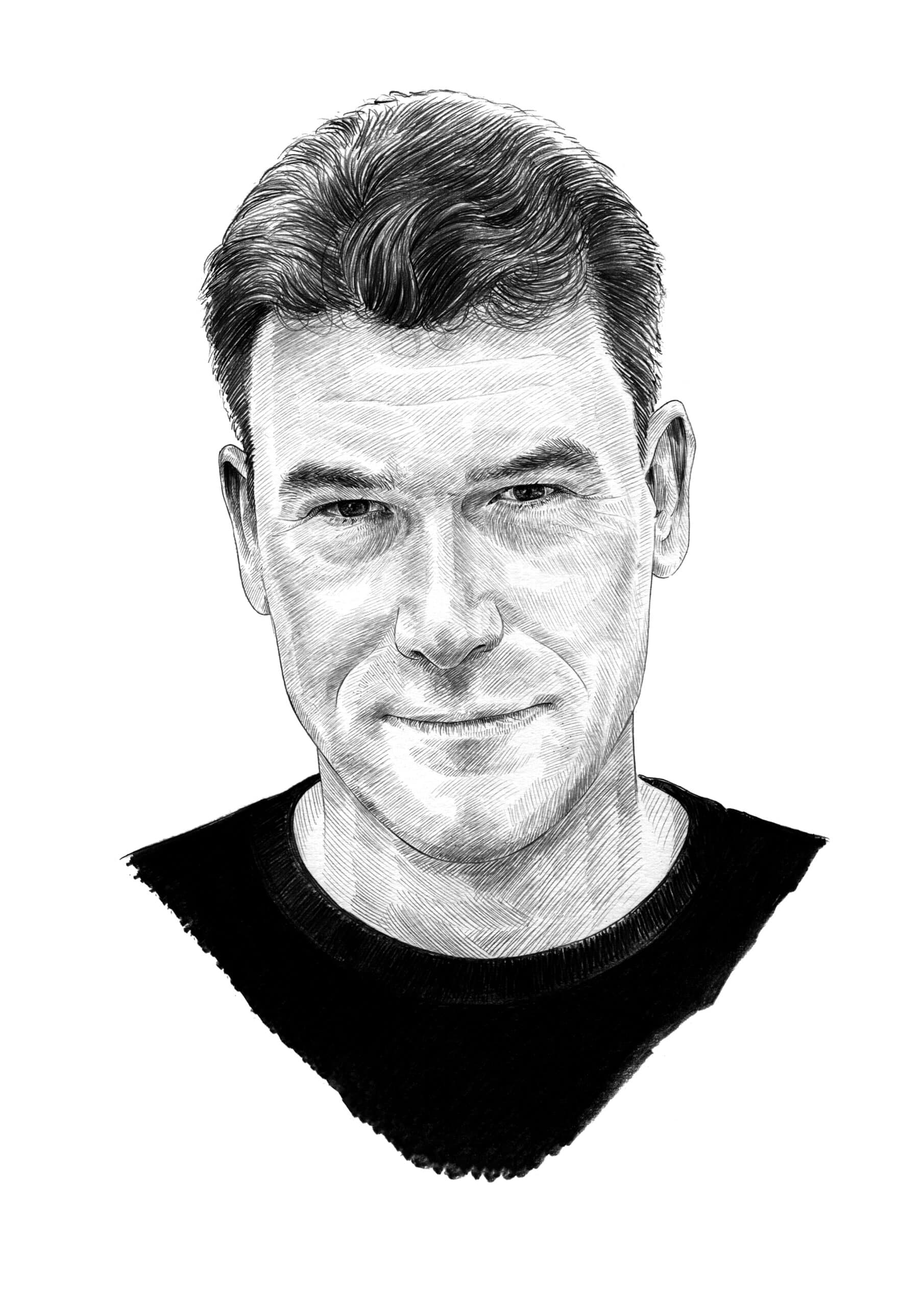
When Henry Kissinger died this week, I reprised an on-stage conversation we’d done together in 2007 to inaugurate the Asia Society’s Center on U.S.-China Relations. I’d not watched the video in the intervening sixteen years and was curious to remind myself of what Kissinger said back then, and to see which of his utterances had been prescient, and which not.
I’d not gotten far into our conversation before I found myself filled by a triste sense of time irrevocably passing and things changing. With Kissinger’s death, not only had we lost one of the last larger-than-life U.S. foreign policy titans – think George Kennan, Dean Acheson, George Schultz, Condoleezza Rice, and Richard Holbrooke — who were all marked by immense ambition and tenacity, but also by real talent and accomplishments. Whatever their individual characterological faults may have been, and Kissinger’s were significant, each strode the global stage with a commanding presence that added a certain Great Power luster to the lingering escutcheon of American greatness.
In a deeply symbolic way Kissinger’s death marks the end of that era when a promising form of U.S.-China diplomacy and policy formation was overseen by leaders who were household names. And Kissinger helped give birth to a big piece of that legacy in 1972 that ultimately became branded as “engagement.” But if Kissinger opened the “engagement door” in 1971 and 1972 and became its Grand Progenitor, his death also now marks the final closure of that door.1Kissinger’s secret trip to Beijing took place in 1971, and was followed by his 1972 trip with President Nixon.
…Kissinger tried to change the rules of the game for two large powers that had been dangerously contending and sometimes clashing with one another.
When Henry Kissinger and Richard Nixon unexpectedly traveled to the People’s Republic of China to meet with Mao Zedong and Zhou Enlai in 1972, they threw a monumental switch that sent U.S.-China relations down a completely different track. The bilateral relationship that had been chugging down a Cold War track for more than two decades was suddenly re-routed in a completely new direction, one that emphasized rapprochement rather than mutual suspicion, animosity, and competition. Their 1972 encounters were catalyzed not with the milk of human kindness, but by a joint U.S.-China fear of the Soviet Union’s intentions. And, no one in the Nixon/Kissinger-Mao/Zhou quartet fully comprehended just what their foreign policy reset was putting in motion. But they were, in fact, laying down a new track for what would become known in the U.S. as “engagement,” a policy that would last (in evolving form) for more than five decades.

It was, in fact, not Henry Kissinger or President Nixon, but President George H.W. Bush who first used the word “engagement.” He did so as a way to encourage U.S.-China relations onward as Washington’s ties to Beijing teetered on the brink of collapse after the Tiananmen Square Massacre in June 1989. Despite the shock of this horrifying turn of events, President Bush believed that maintaining an open door to China was the best hedge against future tensions and hostility.
“I believed that the commercial contacts between our countries had helped lead to the quest for more freedom,” he wrote in a 1998 book co-written with Brent Scowcroft, “A World Transformed.” “If people have commercial incentives, whether it’s in China or in other totalitarian systems,” he wrote, “the move to democracy becomes inexorable.”
As Mikhail Gorbachev dismantled the USSR and stripped away its outlying “soviet republics,” he weakened it as a great power to the point where it no longer served as a bonding agent for U.S.-China relations. So President Bill Clinton was left to establish a new logic for the Sino-U.S. partnership. And, he recast “engagement” with the core notion that more trade, cooperation and cultural exchange between the U.S. and China would not only produce wealth, but a more open, friendly, democratic and soluble China, one that would lead to better U.S.-China relations, and a safer world.
Former National Security Advisor Henry Kissinger speaks with Orville Schell about U.S.- China relations during his two terms under Presidents Richard Nixon and Gerald Ford, as well as the state of foreign affairs at the time. January 30, 2007. Credit: Asia Society
However, what is often overlooked on the American side of this bilateral dance was the fact that China never fully constructed its own notion of what “engagement” meant. Instead, Beijing’s leaders saw it largely as a pathway to global markets and wealth. Indeed, the term used in Chinese for “engagement”(接触) has none of the evangelical redolence of implied social and political, as well as economic, change that might be brought about through more contact that characterized the American version. The Chinese representation was far more limited and transactional. As the Chinese aphorism puts it, “We were sleeping in the same bed, dreaming different dreams. (同床异梦).”
Long before the notion of “engagement” became a branded policy, since Henry Kissinger had been “present at the creation,” he came to be looked on as its progenitor. Although it evolved under others, it was viewed as Kissinger’s grand achievement. And before it finally ran out of track, nine U.S. presidential administrations, both Republican and Democratic, had embraced the idea that such rapprochement with what was once referred to as “red China” was good for the U.S., the world, and China. Kissinger stuck with it, too, believing that greater interaction was the most hopeful tonic for this once hostile and dangerous relationship. After all, in world history the alternative to rapprochement had all too often been conflict. And having watched the collapse of the Weimar Republic and the rise of Naziism as a Jewish boy in Bavaria, he’d witnessed firsthand the dangers of rabid leaders and nations run-amok.
Of course, in 1972 Kissinger had no way of knowing what he and Nixon had set in motion or how it would evolve. But he was gratified when under Deng Xiaoping, whom he respected as a truly great leader, his initial rapprochement with this once errant “People’s Republic” began to grow new and more collaborative wings. He not only embraced China’s eagerness to become involved, but learned how to profit from it. Once out of office, he did this, in part, by setting up Kissinger & Associates, an international consulting firm that would eventually capitalize by advising an array of big corporate clients, all seeking to take advantage of “engagement” and profit from China’s rise.
But neither his pecuniary interest in better U.S.-China relations nor his infatuation with being a game-changing diplomatic titan like Talleyrand, Castlereagh, and Metternich diminishes his accomplishments. He helped bring together two warring enemies that were divided by ideology, politics, race and values, two nations that had been trapped in Cold War brinkmanship. That Kissinger may have downplayed the durability of China’s deeply rooted and extreme form of Marxist-Leninist revolution, the savagery of its implementation, and the ultimate rigidity of its autocracy, seems almost beside the point, in retrospect. The point is: Kissinger tried to change the rules of the game for two large powers that had been dangerously contending and sometimes clashing with one another. Yes, Kissinger had his blind spots. He could ignore tyranny when it served his geo-political purposes; hector inferiors; be obsequious to superiors; confuse his own pecuniary interests with those of the commonweal; and exhibit an overweening ambition that bordered on hubris. However, his bold roll of the dice in 1972 did change the game in some hopeful ways for more than five decades. It was an adventurous and worthwhile try.
…his epic 1972 trip represented the beginning of an historical odyssey into a new period of Sino-U.S. hopefulness. Now, this odyssey has ended, but not in a way that Kissinger in our 2007 conversation seemed quite able to imagine.
Alas, as recent events have demonstrated, his efforts ultimately failed. Why? Not so much because of anything that Kissinger or subsequent U.S. diplomats did, but because Xi Jinping did not turn out to be a reform-minded autocrat. He was not even a proponent of latter day Leninism-light with which many of his earlier counterparts – Deng Xiaoping, Hu Yaobang, Zhao Ziyang, and even Jiang Zemin – flirted. Xi is more of an old-style Leninist who believes that for a Leninist political system, reform is a fast track to collapse, even regime change. He never forgot that the consequence of Glasnost and Perestroika precipitated the end of the Soviet Union. And he seems to have decided early on that any such reform agenda in China would be the road perdition, for him as a leader, the Chinese Communist Party’s one-party rule, and China as a rising power seeking its rightful place on the world stage. It was hardly surprising then that upon assuming power in 2012, he refused to follow in Gorbachev footsteps. For whereas Gorbachev lost his empire, a reality to which Vladimir Putin has never been able to reconcile himself, Xi wanted to rejuvenate his country’s empire. It was the recognition that reform might ineluctably lead to the end of his dream of a restoration of China’s imperial greatness that helped compel Xi to put a stake through the heart of “engagement.”
In my 2007 conversation with Kissinger, and other discussions since, I’ve always had the sense that he could never quite imagine a China that could once again heave up a neo-Maoist like Xi. He fervently hoped, and maybe believed, that his diplomacy had been so deft and so well timed that it had magically swept Mao’s revolution down history’s memory hole. The rise of subsequent, more pragmatic leaders like Deng, Zhao Ziyang, Hu Yaobang and Jiang Zemin, only seemed to confirm this belief, or perhaps it was only a hope, that China had moved on, a testament to the alchemic powers of excellent diplomacy and his own acumen as a global leader.
Alas, instead China (and the world) got Xi Jinping, a retrograde old-style autocrat who serves as a reminder that the impact of any revolution as long-lived, comprehensive, and brutal as Mao’s leaves deep scars and deeper wells of authoritarian impulse on a society and its political mindset that may take generations to cleanse.
Even though Xi was glad to welcome Kissinger back to Beijing last July, to commemorate his 100th year, there was little chance that Xi was about to change either his increasingly authoritarian course at home or his ever more belligerent stances abroad. The November APEC summit, where Xi met with President Biden in San Francisco, has done little to alter such assessments. Any kind of future version of “engagement 2.0” would take a new surge of reciprocity, not a commodity in which Xi easily trades lest it appear as a manifestation of weakness. So, my conclusion after watching this 2007 video interview with Kissinger, is that there is now little prospect for a restoration of any kind of neo-Kissingerian “engagement” with Xi’s China. But, perhaps I will be surprised. I hope so, for it is a dream that I, too, have long cherished.
In the meanwhile, we are left to reflect on the death of “engagement.” It was a noble, if somewhat naïvely American, effort to bend the metal of Chinese Leninist autocracy the better to get along with China. And, it was a good try. But it also was a failure. It is this bitter recognition that gives watching Kissinger holding forth during the halcyon days of “engagement” such a triste fin de siècle feel. His 1972 trip represented the beginning of an epic historical odyssey into a new period of Sino-U.S. hopefulness. But now, this odyssey has ended, and not in a way that Kissinger in our 2007 conversation seemed quite able to imagine. Instead, he expressed a cautious confidence, even optimism, about the future. Perhaps such a sentiment was born of the hope that what he’d helped catalyze in Beijing all those years ago was not quite as perishable as it’s finally proven to be.
And, since it finally is unlikely that our world, much less our country, will soon produce another such larger-than-life type diplomatic superhero as Kissinger – and the same may also be said of China – it seems unlikely that any impressive leader will appear on the diplomatic ramparts to muscle through a breakthrough for our stand-off.
So, rest in peace, Henry.
Rest in peace, “engagement.”
We do not know what comes next. Should it be war in the Taiwan Straits, the South China Sea, or around the Senkaku islands, there would be no one more disappointed than Heinz Alfred (Henry) Kissinger,2Kissinger was born Heinz and later changed his name to Henry. who was not unacquainted with wars, and spent much of his life trying to diminish the prospect of war between the U.S. and China.

Orville Schell is the Arthur Ross Director of the Center on U.S.-China Relations at Asia Society in New York. He is a former professor and Dean at the University of California, Berkeley Graduate School of Journalism. His debut novel, My Old Home: A Novel of Exile, was published in March 2021.




